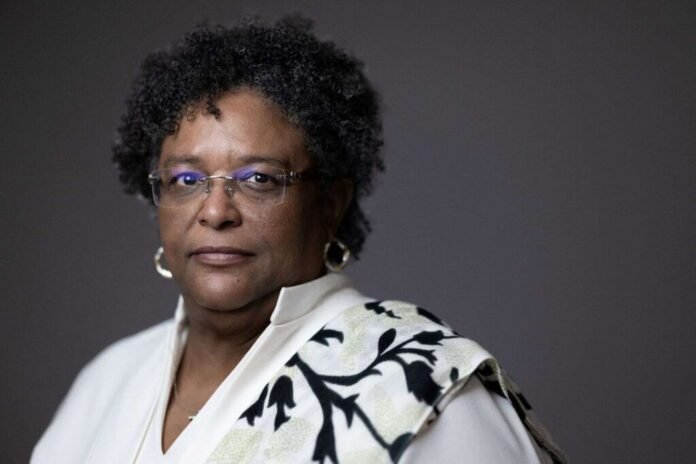Mottley Stands Firm: A Call for Caribbean Unity on Cuban Health Support
In a powerful display of leadership, Prime Minister Mia Mottley of Barbados recently made headlines during the New Global Financial Pact Summit in Paris. Posing for a photo at the Palais Brongniart on June 22, 2023, she took the opportunity to address a pressing issue that resonates deeply within the Caribbean community: the invaluable support provided by Cuban health professionals.
Mottley’s remarks came in response to growing scrutiny from the United States regarding the Cuban health brigade program, which has sent thousands of doctors and nurses to assist Caribbean nations, especially during the COVID-19 pandemic. “I will be the first to tell you that we could not get through the pandemic without the Cuban nurses and doctors,” she stated emphatically in Parliament. This sentiment echoes the gratitude felt by many in the region, who have witnessed firsthand the life-saving contributions of these medical professionals.
The U.S. government, however, has raised concerns about the program, with Secretary of State Marco Rubio announcing an expansion of visa restrictions targeting individuals linked to Cuba’s labor export program. This move has sparked a wave of support for Cuba from various Caribbean leaders, including those from Antigua and Barbuda, St. Vincent and the Grenadines, and Trinidad and Tobago. They argue that the Cuban program has significantly benefitted the region and should not be viewed through a lens of suspicion.
Mottley, the only female head of government in the Caribbean, expressed her willingness to face the consequences of standing by her principles. “If the cost of it is the loss of my visa to the U.S., then so be it,” she declared. Her resolute stance highlights a broader call for Caribbean unity in defending the contributions of Cuban health workers. “What matters to us is principles,” she emphasized, reminding us that true commitment often requires standing firm, even when it’s inconvenient.
The Prime Minister’s comments have resonated with many Barbadians and Caribbean citizens alike. “Cuban doctors saved my aunt’s life during the pandemic,” shared a local resident. “We owe them our gratitude, not suspicion.” This sentiment reflects a growing recognition of the importance of solidarity in the face of external pressures.
Mottley also addressed misconceptions surrounding the compensation of Cuban health professionals, stating that they receive pay equivalent to their Barbadian counterparts. “The notion that we were involved in human trafficking by engaging with Cuban nurses is fully repudiated and rejected by us,” she asserted. This clarification is crucial, as it seeks to dismantle the narrative that has been perpetuated by some U.S. officials.
As the Caribbean navigates these complex waters, Mottley’s leadership shines as a beacon of hope and resilience. “I look forward to standing with my Caricom brothers to explain that what the Cubans have done for us has been to save lives,” she said, reinforcing the idea that collaboration and mutual support are vital for the region’s health and well-being.
In a world where political tensions often overshadow humanitarian efforts, Mottley’s call for unity serves as a reminder of the power of compassion and cooperation. As Caribbean nations continue to grapple with the challenges posed by the pandemic and beyond, the question remains: how can we ensure that the spirit of solidarity prevails in the face of adversity?

